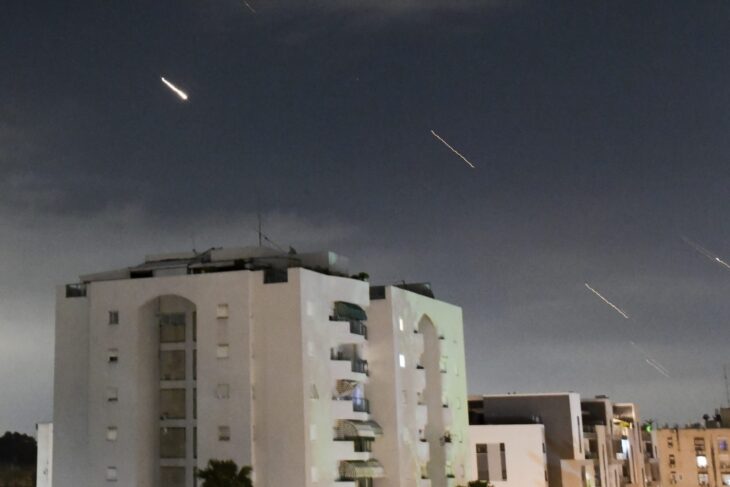
why has Iran just fired drones and missiles at Israel and does it make a wider war more likely? – Channel 4 News
Iran launched 300 drones and missiles towards Israel last night in its first ever direct attack on the country. It comes as retaliation for the bombing of Iran’s embassy in Syria, which Tehran blames on Israel and which Israel has not explicitly denied.
Israel’s defence ministry says it intercepted “99 per cent” of last night’s incoming fire with the help of the US and other nations including the UK and France. Israel says that one person, reportedly a child, has been injured.
So why are Iran and Israel so hostile to one another, and what could last night’s events mean for the prospects of a wider war in the Middle East?
Why are Iran and Israel hostile towards each other?
Since the 1979 Iranian Revolution – which installed a hardline Islamist regime – Iran has refused to recognise Israel’s legitimacy as a state.
It also continues to fund Palestinian armed groups that seek to attack and destroy Israel, including Hamas and Palestinian Armed Jihad (PIJ), which are proscribed terror groups in the UK and US.
Tensions have risen further since the 7 October attacks on Israel, which were led by Hamas with PIJ involvement and left more than a thousand people dead and hundreds held hostage.
In November – a month after Israel began its retaliatory bombardment of Gaza – Iran’s president Ebrahim Raisi said the “child killing actions of the Zionist regime will cause the hand of divine vengeance to come out and end the life of the Zionists so that the Palestinians get their rights”.
Then in April, the Iranian embassy in Syria was destroyed, killing 13 people including senior commanders. Israel has not claimed responsibility, nor has it explicitly denied the attack. It said it doesn’t comment on “reports in the foreign media”.
Nevertheless, Iran is clear Israel was responsible and that it considers the bombing to be an assault on its territory – and that last night’s drones and missiles were retaliation for Israel’s actions.
Is a wider war more likely?
Jonathan Panikoff, the director of the Atlantic Council’s Scowcroft Middle East Security Initiative, says Iran’s assault “goes far beyond a proportional response” to the embassy bombing.
“At best,” he says, “Israeli Prime Minister Benjamin Netanyahu is almost certain to respond and take steps to attack Iranian targets, probably in Iran, in a manner that will be specific and contained and won’t lead to another significant Iranian response. At worst, the Israeli response will be intense and include the bombardment of important Iranian sites.”
He adds: “what is clear is that this is the beginning of a new era, one in which Iran is willing to respond directly to Israeli attacks and in doing so risk retaliation against the Iranian homeland.”
Gina Abercrombie-Winstanley, a former US ambassador who also works with the Atlantic Council, says “Iranian honour has been satisfied” and “the next step does not have to be escalation”.
She says Iran’s response to the embassy incident has also given Benjamin Netanyahu “three things he needed badly”. “Gaza has retreated in the conversation,” she says, which could help relieve pressure to end the war. The threat of the attack prompted Joe Biden to publicly affirm the US’s support for Israel after weeks of wavering. And the Prime Minister “may have reunified Israelis again in the face of danger, which will help keep him in power.”
Dr Lina Khatib of Chatham House told the BBC this morning that the “actually quite limited” Iranian attack “shows that Iran just wanted to send a very strong message, to save face, so that it is seen as having responded directly to Israel, but at the same time it definitely does not want the matter to escalate any further.”
>